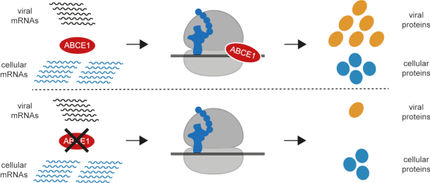Benitec’s Hepatitis B RNAi Program with Biomics Biotechnologies Moves to the Next Stage Following Successful Stage 1 Results
Benitec Limited announced that following the success of the first stage of its anti-viral program to develop an RNA interference (RNAi)-based therapy against hepatitis B virus (HBV), conducted in collaboration with China-based Biomics Biotechnologies Co. Ltd, the companies have reached agreement to proceed to the next stage which is designed to develop an RNAi therapeutic to the point of pre-clinical studies in vivo.
The overall aim of Benitec’s HBV program is to develop a novel and effective therapeutic option for Hepatitis B, based on Benitec’s DNA directed (dd)RNAi platform technology, to improve the lives and health outcomes for people with chronic HBV infection and also to reduce its spread. Current therapies have only limited inhibitory effects on viral gene expression and replication in the majority of chronically infected patients.
Under the terms of the new agreement, Benitec and Biomics will share the costs of the program, the ownership of the intellectual property and also commercialisation rights based on an agreed division of territories.
The first stage of the program commenced in 2010 and was successful in achieving its aim of identifying several target RNA sequences capable of inhibiting the replication of the virus. In that stage five thousand clones from the target viral gene were sequenced and over 500 potential RNA target sequences were identified. These RNA sequences were randomly distributed along the target gene. To identify the most effective RNA sequences, a laboratory model of HBV infection was used. One hundred of the 500 RNA sequences produced 50% or greater HBV gene knock down, 14 of which resulted in over 70% knock down.
This data provides a solid foundation for the second stage of the program under which the companies will carry out proof-of-principle studies in vitro and in vivo to optimize a pre-clinical ddRNAi-based therapeutic candidate. The second stage is expected to take around 18 months to complete.
Most read news
Other news from the department research and development

Get the life science industry in your inbox
By submitting this form you agree that LUMITOS AG will send you the newsletter(s) selected above by email. Your data will not be passed on to third parties. Your data will be stored and processed in accordance with our data protection regulations. LUMITOS may contact you by email for the purpose of advertising or market and opinion surveys. You can revoke your consent at any time without giving reasons to LUMITOS AG, Ernst-Augustin-Str. 2, 12489 Berlin, Germany or by e-mail at revoke@lumitos.com with effect for the future. In addition, each email contains a link to unsubscribe from the corresponding newsletter.




















































